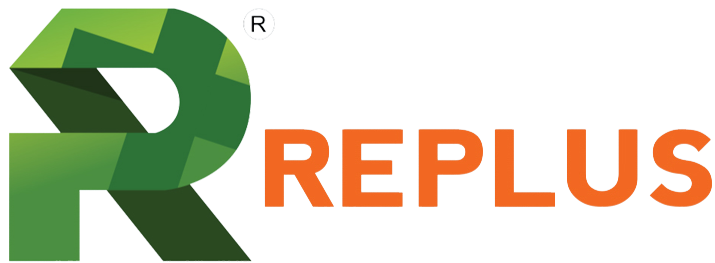The Tendency of Human Resource
Human Resource (HR) development is undergoing a significant transformation. Gone are the days of static training manuals and one-size-fits-all approaches. Modern HR development embraces a dynamic and data-driven approach, focusing on employee growth and alignment with evolving business needs.
The rapid pace of technological change necessitates a continuous learning environment. HR development programs are increasingly focused on equipping employees with the skills they need to adapt to new technologies and stay relevant in their roles. A report by the World Economic Forum estimates that by 2025, 50% of all workers will need reskilling and upskilling.

Besides that, HR departments are leveraging data analytics to identify skill gaps within the workforce and personalize learning experiences. This ensures training programs are targeted, efficient, and address employees’ specific needs. Research by Brandon Hall Group indicates that organizations with strong learning personalization practices experience 17% higher employee engagement.
However, while technical skills remain important, soft skills like critical thinking, communication, and problem-solving are becoming increasingly valuable. HR development programs are incorporating these skills to prepare employees for success in a complex and collaborative work environment. A study by LinkedIn Learning revealed that soft skills are listed in over 80% of job postings. These statistics can provide you with an overview of the human resources field.
The Main Responsibilities of Professional HR Roles in Your Business
HR Roles often depend on the companies they work for, the sizes of businesses, and operation systems in their own organizations. Therefore, we only provide the knowledge about the main and crucial responsibilities of the HR Role.
Recruitment & Selection

- Identifying Talent Needs: Our HR team analyzes our business goals and collaborates with different departments to pinpoint the specific skills and experience we require for open positions.
- Crafting Compelling Job Descriptions: They create clear and engaging job descriptions that accurately reflect the position’s responsibilities and attract qualified candidates.
- Sourcing & Screening Candidates: HR utilizes various channels to find qualified individuals, including online job boards, professional networks, and employee referrals. They then screen resumes and conduct initial interviews to identify the best fit for the role.
Induction New Employees
- Smooth Onboarding Process: HR creates a welcoming and informative onboarding experience for new hires. This includes introductions to colleagues, familiarization with company policies, and training on essential tools and processes.
- Mentorship Programs: Our HR team might establish mentorship programs, pairing new employees with experienced colleagues who can offer guidance and support during their initial adjustment period.
Training & Development of New Employees in the Workplace
- Needs-Based Training: HR conducts training needs assessments to identify skill gaps and develop customized training programs. This ensures new employees are equipped with the knowledge and skills required to excel in their roles.
- Ongoing Learning Opportunities: Our HR team fosters a culture of continuous learning by offering ongoing training and development opportunities to help employees stay current with industry trends and advance their skill sets.
Performance Appraisals & Personnel Promotions

- Performance Management System: HR establishes a fair and transparent performance management system that provides regular feedback to employees on their strengths, weaknesses, and areas for improvement.
- Promotion Opportunities: Based on performance reviews and demonstrated potential, HR identifies and supports employees who are ready for promotions within the company.
Compensation & Benefits
- Competitive Compensation Packages: HR researches to ensure our compensation packages are competitive within the industry and reflect the value our employees bring to the company.
- Benefits Administration: Our HR team manages the administration of employee benefits, ensuring employees understand and can fully utilize the available health insurance, retirement plans, and other benefits.
Employee Retention
- Employee Engagement Initiatives: HR implements initiatives like recognition programs, wellness programs, and flexible work arrangements to keep employees engaged, motivated, and satisfied with their work environment.
- Retention Strategies: By understanding employee needs and addressing concerns, HR plays a crucial role in reducing employee turnover and fostering a loyal and dedicated workforce.
Maintain an Even-handed Work Environment
- Compliance with Labor Laws: HR ensures all company policies and practices comply with local and national labor laws, promoting a fair and ethical work environment.
- Conflict Resolution: HR acts as a mediator in resolving workplace disputes between employees or departments, ensuring fair and respectful communication. They also implement procedures for addressing concerns about harassment and discrimination.
Resolve Conflicts
- Mediation & Conflict Management: HR professionals are skilled in facilitating communication and finding solutions to disagreements. They can mediate disputes before they escalate, promoting a harmonious work environment for everyone.
- Investigate Grievances: If an employee has a formal complaint, HR conducts thorough and impartial investigations to ensure fair and appropriate resolutions.
Why are HR Roles Important to Your Organization?
HR Role in Sydney is a crucial position and a connection between employees and company board. The presence of HR roles brings to the company the advantages of abundant human resources.
Talent Acquirement and Retention

HR helps find, attract, and hire the best people for the job. They design recruitment strategies, screen candidates, and ensure a smooth onboarding process. This keeps the organization staffed with skilled individuals and reduces expensive turnover.
Employee Engagement and Development
HR fosters a positive work environment that motivates and engages employees. This includes offering training and development programs, promoting work-life balance, and handling performance management. Engaged employees are more productive, creative, and loyal to the organization.
6 Tips Work Smarter Not Harder: Optimize Productivity and Career
Compliance and Risk Management
HR ensures the organization adheres to labor laws and regulations. This protects the organization from legal trouble and maintains a fair and safe workplace for everyone.
Company Culture

HR plays a big role in shaping the organization’s culture. They develop and implement policies that promote diversity, inclusion, and ethical behavior. A strong culture attracts and retains top talent, fosters collaboration, and drives overall success.
Strategic Partnership
Modern HR goes beyond administrative tasks. They work with other departments to align HR practices with the organization’s goals. This strategic approach ensures HR initiatives support the overall business strategy.
Essential Skills for Becoming Professional HR Roles

- Active Listening: HR professionals act as a bridge between employees and management. The ability to actively listen is paramount. This means paying close attention to what someone is saying, both verbally and nonverbally, to truly understand their concerns, needs, and perspectives.
- Analysis Skills: HR roles involve a lot of data analysis and interpretation. You’ll need strong analytical skills to assess employee performance data, identify trends in recruitment, and evaluate the effectiveness of HR initiatives.
- Administration: While HR roles Sydney have evolved beyond paperwork, some administrative skills remain important. This includes maintaining accurate employee records, managing benefits administration, and ensuring compliance with HR policies and procedures.
- Communication: Clear and concise communication is essential in the HR role. You’ll need to effectively communicate complex information to a diverse audience, both verbally in meetings and presentations, and in writing through emails, reports, and policies.
- Training Skills: Many HR professionals are responsible for developing and delivering training programs to employees. The ability to create engaging and informative training materials, along with strong presentation and facilitation skills, is a valuable asset.
- Technical Skills: The HR landscape is increasingly tech-savvy. Proficiency in HR Information Systems (HRIS) will enable you to manage employee data, payroll, and other HR functions efficiently. Furthermore, familiarity with recruitment software, learning management systems, and other relevant tools can significantly enhance your effectiveness.
Necessary Certificates that HR Roles have to get in Sydney
There are no mandatory certificates required to work in HR roles in Sydney. However, having a certificate can significantly improve your chances of getting hired and securing a higher-paying job. Here are some of the most relevant certificates for HR professionals in Sydney.
- Certificate IV in Human Resource Management (BSB40420-01)
This is the most common entry-level qualification for HR professionals in Australia. It covers a broad range of HR topics, including recruitment, selection, training and development, performance management, and industrial relations. This qualification is typically offered by TAFE colleges and private providers.
- Diploma of Human Resource Management

This qualification builds on the knowledge and skills learned in the Certificate IV course. It covers more advanced HR topics, such as strategic HR management, workplace relations, and change management. This qualification is typically offered by TAFE colleges and private providers.
Will robots take my job? The impact of technology on the future of work
- Professional Certifications
There are several professional certifications available for HR professionals in Australia, such as the Professional in Human Resources (PHR), the Society for Human Resource Management Certified Professional (SHRM-CP), and the Chartered Professional in Human Resources (CPHR). These certifications are not mandatory, but they can demonstrate your knowledge and expertise in HR to potential employers. Getting a certificate in HR is a great way to start or advance your career in HR. It will give you the knowledge and skills you need to be successful in this field.
We hope this article has provided valuable insight into the diverse and rewarding world of HR. If you’re passionate about fostering positive work environments, building strong company cultures, and empowering employees, then an HR career path might be the perfect fit for you. Don’t hesitate to delve deeper into specific HR specializations that pique your interest – the possibilities for growth and impact are truly boundless. Thank you for reading!


